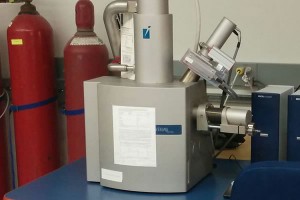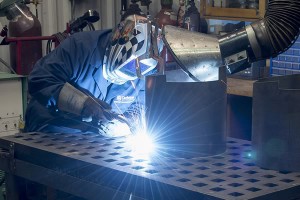Innovation has been a hot topic over the past five years, with many claiming Canadian businesses need to step up their game regarding research & development. The barrier however is always cost. Research and development is expensive, regardless of whether it’s conducted in-house or the task is outsourced overseas. It’s even more challenging to absorb the costs if you are a small-medium enterprise (SME) with thin margins and bottom lines.
Carleton University thinks it has win-win solution for Ottawa’s business community; a chance to access top notch research facilities without breaking the bank. Invest Ottawa spoke with Jeffrey Smirle, a Business Manager at Carleton University and the creator of Carleton Front Door about this new opportunity for local businesses.
What made Carleton want to reach out to the business community?
The University houses a considerable amount of state-of-the-art research infrastructure. This equipment can be expensive to purchase, operate, and maintain, which puts it out of reach for many SMEs that could benefit considerably from having access to it.
While we prioritize the use of this infrastructure for our departments and faculties, the reality is that not all of the equipment is fully utilized. The idea behind Carleton Front Door is to capitalize on the downtime by providing local businesses access to our facilities, the expertise to operate it and interpretation of the results. Our goal is to help local companies augment their R&D platforms and drive innovation in the Ottawa area.
At first glance, it can be challenging to see how a “Nano Imaging Facility” can help a local business. Connect the dots for me. What types of companies would find benefits working with your labs?
The Nano Imaging Facility (NIF), for example, works with a local company that specializes in thin-film coatings and solutions for the telecommunications, entertainment, and digital imaging industries. The NIF obtains high-definition images of the nanoscale components within their thin-film surfaces. This info helps them refine and optimize their coating processes.
Our Science Technology Centre is a machine shop that specializes in prototyping. They have manufactured everything from artificial wrist joints, to implantable artificial heart components, to turbine blades for wind tunnels and water treatment systems.
We help companies with some kind of challenge in their operations, that can’t be addressed in-house. These can be product contamination issues, design and manufacturing needs, or even just the need for more in-depth information regarding their product offerings. We can help address all of this.
Who are the people (within an organization) you are trying to help?
Anyone involved in charting and/or executing R&D priorities. We can sit down with them, identify the best course of action to address these challenges, and help secure funding to offset the company costs of doing so.
Beyond R&D, are there any other ways you can help local businesses?
Our Centre for Quantitative Analysis and Decision Support, in conjunction with our Institute for Data Science, can help guide business decisions through statistical analysis. They also offer workshops for business leaders on the use of analytics in industry. Many of our faculty leaders also offer consulting services that go beyond the scope of basic fee-for-service analysis and contract research.
Are there any associated costs to companies?
There are fees associated with our services, however through programs offered by our funding partners, such as the NSERC Engage program, the OCE Voucher for Innovation and Productivity, and Mitacs accelerate internships, we can leverage funds to help mitigate the costs of doing this type of research for our partners.
What will the University get out of these relationships?
It helps offset some of our operating costs for these facilities. Each lab has technicians and lab managers to oversee the day-to-day operations and maintenance. These positions are often hired on soft money, and salaries rely on revenue generated by the facility. These relationships allow us to cover core costs and eventually infrastructure renewal.
What can people expect at the Open House event for Carleton Front Door on January 21st?
Think of it as a one-stop-shop for companies to come in with a research question or technical challenge, figure out ways to address this challenge, check out the facilities that will be used to address it, and find programs to help pay for everything. It will be very informal. And Program coordinators from NSERC, OCE, Mitacs and Tax Credit Specialists will also be on hand to discuss co-funding opportunities or how to recover cash contributions from these projects.








